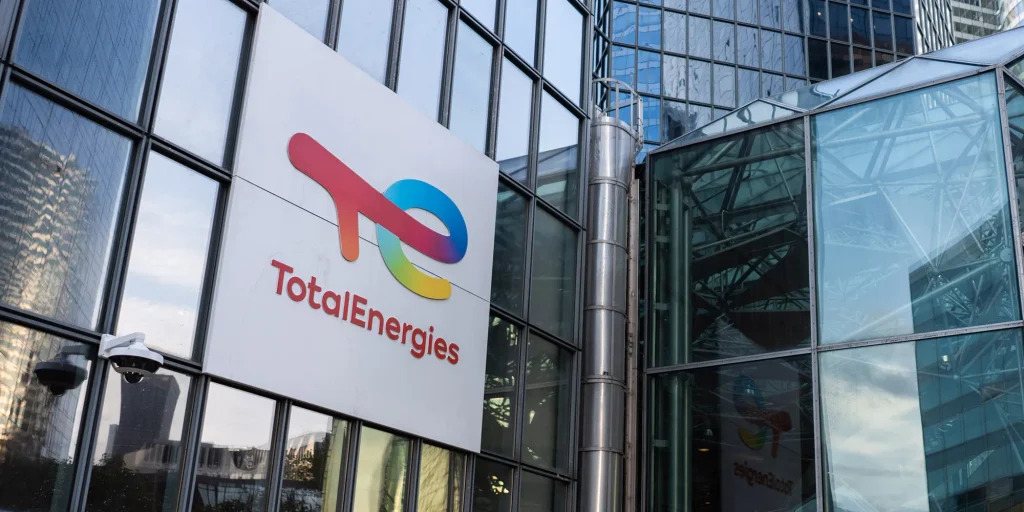TotalEnergies Ordered to Remove Website Claims After Paris Court Partially Upholds Greenwashing Case

- French court orders TotalEnergies to remove website statements on its net zero and transition ambitions, citing potential consumer deception.
- Majority of Greenpeace- and ClientEarth-backed claims dismissed, including those targeting TotalEnergies’ rebranding and gas promotion.
- The case heightens regulatory and investor scrutiny over corporate sustainability communications in the energy sector.
Paris Ruling Tightens Accountability on Climate Claims
A French court has ruled that certain online claims by TotalEnergies about its carbon neutrality ambitions and role in the energy transition were likely to mislead consumers, sharpening the focus on how oil and gas companies communicate climate goals amid mounting legal and regulatory scrutiny in Europe.
The decision follows a lawsuit filed in 2022 by Greenpeace France, Friends of the Earth France, and Notre Affaire à Tous, supported by environmental law organization ClientEarth. The plaintiffs argued that TotalEnergies’ “reinvention” campaign — launched in 2021 to accompany its rebranding from Total to TotalEnergies — misrepresented the company’s progress toward net zero by 2050 and falsely portrayed it as a leader in the energy transition.
While the Paris Judicial Court upheld only a portion of the claims, its ruling ordered TotalEnergies’ French subsidiary to remove several statements from its customer-facing website, including references to being “a major player in the energy transition” and to its “ambition to achieve carbon neutrality by 2050.” The court concluded that the language was not supported by sufficient disclosure of the company’s underlying energy transition scenario and could mislead consumers about the scope and pace of its decarbonization strategy.
The company has one month to comply, after which it faces a fine of €10,000 per day.
Court Dismisses Majority of Claims
The ruling rejected several major elements of the lawsuit, including allegations concerning TotalEnergies’ corporate rebranding, its public promotion of natural gas as a lower-carbon fossil fuel, and its positioning of biofuels as a sustainable alternative. These components form central pillars of the French energy major’s strategy to diversify while maintaining profitability in fossil fuel markets.
In a statement, TotalEnergies said it “acknowledges the decision” but emphasized that “the court dismissed most of the accusations,” adding that “no advertising or communication campaigns were condemned.” The company said it would not appeal and will replace the removed text with “a more factual description of its accomplishments” related to its multi-energy transition plan.
Company Defends Its Transition Record
TotalEnergies used the ruling to highlight its recent investments in low-carbon energy. Since 2020, it has invested more than €20 billion globally — including €4 billion in France — across renewables, biofuels, and electricity generation. The company reported 32 GW of gross installed renewable capacity and annual production of 50 TWh of electricity, roughly equivalent to 15 nuclear reactors.
Domestically, TotalEnergies operates 430 wind and solar projects totaling 2 GW, serves over 4 million retail energy customers, and leads the country’s EV charging network with 1,900 fast-charging points. It has also invested nearly €1 billion in two French biorefineries producing biofuels and sustainable aviation fuel, alongside 117 agrivoltaic projects representing almost 2 GW of capacity.
The company says it has reduced greenhouse gas emissions from operated oil and gas facilities by 36% since 2015 and methane emissions by 55% since 2020.
RELATED ARTICLE: TotalEnergies Launches Largest European Solar Cluster in Spain
“With all due respect to those who continue accusing us of greenwashing despite what we have accomplished for the energy transition in France and globally, we remain committed to building the energy system of tomorrow,” TotalEnergies stated.
Rising Regulatory Pressure on Corporate Climate Claims
The ruling arrives as European courts, consumer protection agencies, and financial regulators tighten enforcement around misleading sustainability communications. The European Commission has proposed a directive banning vague environmental claims unless they are verifiable, while national watchdogs have stepped up investigations into corporate “greenwashing” across multiple sectors.
Energy majors have become primary targets as they reposition their portfolios under investor and policy pressure. Cases similar to TotalEnergies’ have surfaced against Shell, BP, and Repsol, as activists and shareholders seek to align corporate narratives with measurable transition outcomes.
For executives and investors, the Paris decision reinforces a broader shift toward accountability in climate communications — one that ties reputational risk directly to disclosure accuracy and substantiated progress.
As legal frameworks converge with ESG reporting standards under the EU’s Corporate Sustainability Reporting Directive (CSRD) and global assurance norms from the ISSB, companies’ sustainability claims will increasingly be judged not just by ambition but by verifiable, scenario-based transparency.
TotalEnergies’ case, while largely favorable to the company, serves as a cautionary marker: even partial rulings can reshape the boundaries of acceptable climate storytelling in Europe’s energy transition.
Follow ESG News on LinkedIn












